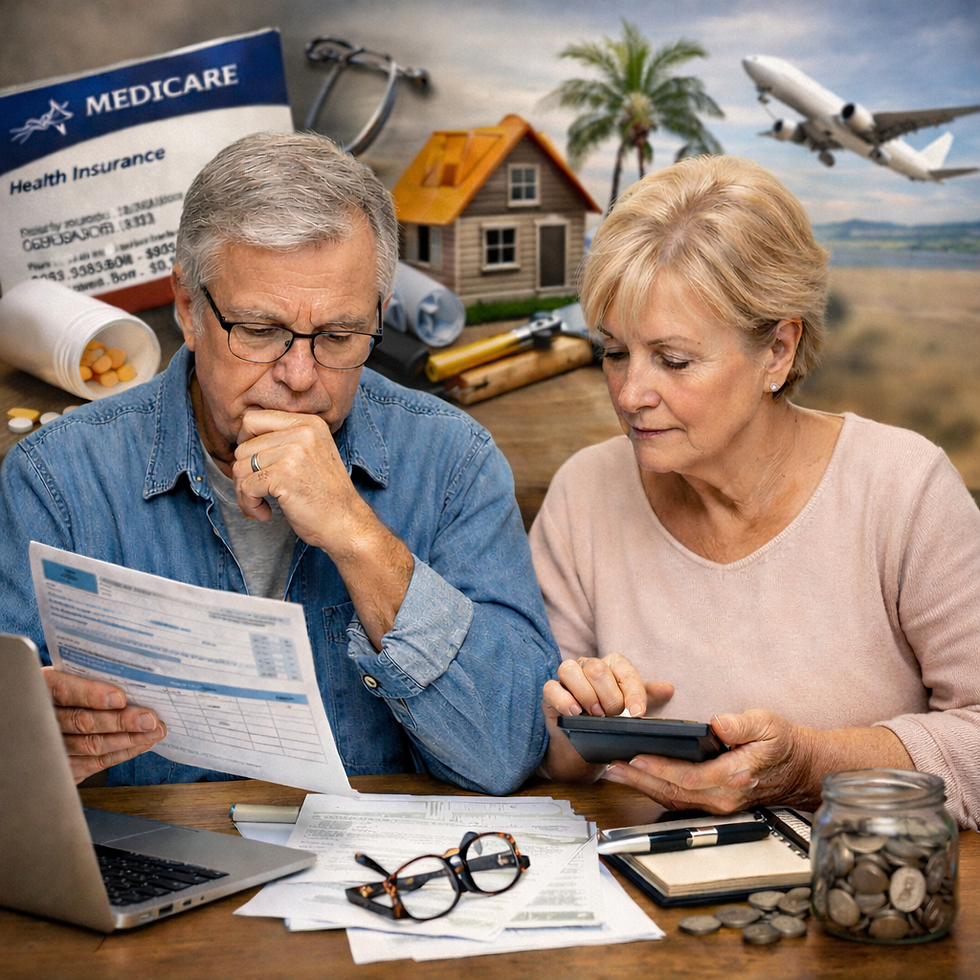Make A Financial Go Bag
- Mutual Assurance Society
- Aug 11, 2025
- 3 min read
Updated: Sep 2, 2025

We've published articles on how to help recover financially after a crisis (click here to go to Create Your Financial Disaster Recovery Plan), but what if a hurricane, tornado, flash flood, or wildfire is coming and you need to move quickly? Will you have what you need to weather the storm financially?
While the tropics are fairly quiet right now, forecasters warn a surge in storm activity could begin by mid-September due to changing atmospheric conditions which are favorable to cyclone development in the Atlantic basin.
So, here are the things you should have ready to go - placed in waterproof, zip-lock bags. With these handy, you can more easily piece your life back together should a disaster occur.
In addition to keeping it in baggies, there are three other ways you may want to use to keep this information safe.
Off-site, such as a bank box or at a relative's home/business in different areas (other states, other parts of your state that aren't likely to be impacted by the same events) is an option. Store these copies there if you feel you can get quick and easy access.
An additional safety measure would be to store copies of your documents in the cloud. In some cases, these may not be legally accepted, but you would have access to the numbers and dates to help generate replacements.
Save them onto a flash drive you keep in your bags.
Because transportation and communication may not be available during and immediately after a natural disaster, keeping copies in all four places is a good idea.
Personal Documents
When you evacuate, you will want to have more than just your wallet or purse with you. Originals or copies of these documents for you and all of your family members should go with you.
Social Security card
Passport
Birth certificate
Marriage license
Divorce statement
Estate planning documents (like wills, trusts, etc.)
Car and house titles (copies only - originals should be stored in a fireproof/waterproof safe, bank box, or with a lawyer)
Home Inventory
Your insurance provider may already have a copy of your home inventory, which is likely electronically stored in the cloud. This list, however, is seldom as comprehensive as you may need, so take a video or photos of everything in your house—film inside cabinets, drawers, closets, sheds, garages, attics, and crawlspaces.
The more you record, the better. To save space, save your photos and a copy of your video on a flash drive.
Cash
ATMs often run out of money quickly after a disaster, and that's assuming there is electricity to operate them. Choose an amount that helps you feel safe from predators while ensuring you have enough to use.
You can also ask trusted friends or family in other locations to hold onto extra cash for you. Be sure to arrange how you will access these funds, and plan for transportation and communication problems.
Insurance Policies
You don't have to carry your entire policy, but you should have access to it. At Mutual Assurance, we'll have all of that information on file, and you can access it on the member portal. So, you only need to have your policy number(s) loaded into your phone and with your documents.
Other insurance providers, however, may require you to have your policy so you can quickly reference what is and is not covered in case there is a disagreement.
Before a disaster strikes, know when your policy renews so you can be certain it is in effect.
Program your insurance provider's contact information into your phone and include it in your paperwork. This will save you a lot of stress and frustration.
Financial Account Information
Include digital and hard copies of your banking, investment, life insurance, health insurance, and retirement account information, along with account numbers, amounts, contact information, and renewal dates.
Phone Numbers
These should be on your phone and in your paperwork. You may not have a charge on your device when you need it, so having it on paper is a good idea. Numbers for doctors, friends, relatives, pharmacies you use, service people you know and trust, and your lawyer should be included.
Once you start putting it together, you'll be surprised at how scattered all of this information is. Don't wait until the last minute to try to locate it. A binder holding all of this, and secured in a waterproof bag is easy to grab and run with.
Sources: AARP, Barrons, CNN, Wall Street Journal



Comments